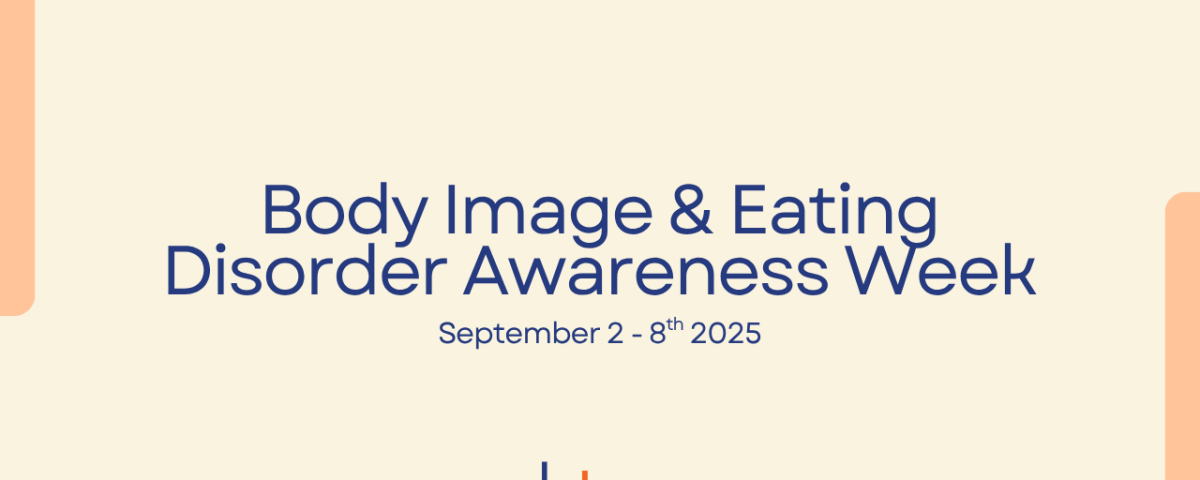Body Image and Eating Disorder Awareness Week
Every year, Body Image and Eating Disorder Awareness Week invites reflection on the complex relationship we have with our bodies — a relationship that goes far beyond appearance. From media-driven ideals to deeply personal experiences of self-worth, body image affects not just how we look, but how we feel about who we are.
Running from 2–8 September, this week is a vital opportunity to raise awareness about eating disorders, challenge unrealistic beauty standards, and explore how therapy can support recovery — for both body and mind.
What is Body Image?
Body image is often misunderstood as purely about appearance — how we look in the mirror, how clothes fit, or how others perceive us. In reality, body image is a psychological experience. It includes the thoughts, feelings, beliefs, and behaviours we associate with our bodies.
Factors That Shape Body Image
Body image develops over time and is influenced by:
- Cultural and societal messages about beauty, worth, and “ideal” bodies
- Family dynamics and early attachments, including praise or criticism
- Peer influence, such as bullying or social validation
- Media portrayals of beauty and fitness standards
- Personal experiences, including trauma, illness, or identity development
For many people, body dissatisfaction isn’t only about wanting to be thinner or fitter — it reflects a deeper sense of inadequacy, unworthiness, or feeling “not enough.”
The Psychological Roots of Body Dissatisfaction
At the heart of negative body image often lies a fragile sense of self-worth. When self-esteem is tied to appearance, we develop a conditional sense of value:
- “I’ll feel good about myself if I reach a certain weight.”
- “I’ll be accepted only if I look a certain way.”
These beliefs may stem from early life environments where love, attention, or praise were conditional, creating patterns that are internalised and self-policing.
Negative body image can also act as a coping mechanism. People who have experienced trauma, anxiety, or loss of control may focus on controlling food or weight, seeking a false sense of stability.
Societal pressures can exacerbate the problem. Diet culture, extreme fitness trends, and wellness obsessions often reward disordered behaviours, masking the psychological distress beneath.
Eating Disorders: More Than Food
Eating disorders are serious mental health conditions with roots beyond food, weight, or appearance. Emotional distress, perfectionism, identity struggles, and low self-worth often play a role.
Common Eating Disorders Include:
- Anorexia nervosa: Restriction of food intake, intense fear of weight gain, and distorted body image.
- Bulimia nervosa: Cycles of bingeing and purging, often driven by shame or guilt.
- Binge Eating Disorder: Recurrent episodes of consuming large amounts of food rapidly, often to discomfort.
- ARFID (Avoidant/Restrictive Food Intake Disorder): Food avoidance linked to sensory sensitivity, fear of illness, or negative past experiences with eating.
Eating disorders affect all genders, ages, ethnicities, and body types. You do not have to be underweight to be struggling.
How Therapy Supports Body Image Healing
Therapy can be transformative for anyone struggling with body image or disordered eating. It provides compassion, insight, and a safe space, often contrasting with the harsh inner critic many experience.
Therapy Can Help By:
- Exploring the Origins of Body Beliefs
Identify where negative thoughts began and who or what shaped them. Awareness helps reduce their power. - Rebuilding Self-Worth
Shift from appearance-based value to intrinsic worth, recognising yourself as a whole person. - Developing Healthy Coping Strategies
Replace restrictive eating or body control with mindfulness, emotional regulation, and boundary-setting techniques. - Challenging Cognitive Distortions
Identify and reframe unhelpful thinking, such as black-and-white thinking (“If I’m not thin, I fail”) or catastrophising (“If I gain weight, no one will love me”). - Fostering Body Neutrality or Acceptance
Support realistic goals like body neutrality or body respect, focusing on caring for the body rather than constant judgment. - Creating Connection and Belonging
Therapy reduces isolation and shame, offering validation through one-on-one or group settings.
Why Body Image Awareness Matters
Raising awareness goes beyond individual healing — it challenges societal norms that perpetuate body dissatisfaction and disordered eating.
- Reject industries profiting from body shame
- Redefine health beyond size
- Promote diverse body types, genders, and cultural experiences
Most importantly, it encourages a world where people are valued for who they are, not just how they look.
You Are Not Alone
If you’re struggling with body image or an eating disorder: you are not broken, and you are not alone. These struggles are common and nothing to be ashamed of. Support and recovery are possible.
During Body Image and Eating Disorder Awareness Week, take time to:
- Reflect on your relationship with your body
- Speak kindly to yourself
- Seek professional support if needed
- Show compassion to others
You deserve a life defined by your values, passions, relationships, and self-worth, not the size or shape of your body.
Support Services in Australia:
- Butterfly Foundation – National support for eating disorders & body image: 1800 33 4673 | butterfly.org.au
- Eating Disorders Queensland (EDQ) – Counselling, groups, and community support: edq.org.au
- InsideOut Institute – Research and clinical excellence in eating disorders: insideoutinstitute.org.au
- Headspace – Support for young people (12–25) with mental health concerns: headspace.org.au
- Lifeline – Immediate crisis support: 13 11 14 | lifeline.org.au
THREE CONVENIENT LOCATIONS
MOUNT GRAVATT
Mt Gravatt Medical PrecinctSE 105, 1808 Logan Rd
Upper Mount Gravatt QLD 4122


